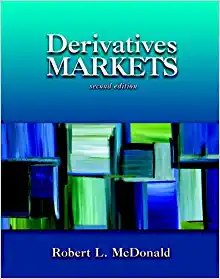Question
Please help to check whether I identified the question correctly, thanks! Identify and explain the error made by Bogle: The most fundamental decision of investing
Please help to check whether I identified the question correctly, thanks!
Identify and explain the error made by Bogle:
The most fundamental decision of investing is the allocation of your assets: How much should you own in stock? How much in bonds? How much in cash?... That decision [has been shown to account] for an astonishing 94% of the differences in total returns achieved by institutionally managed pension funds... There is no reason to believe that the same relationship does not hold true for individual investors. John Bogle
Identified Error:
Bogle made and error by saying allocation of assets among stocks, bonds, and cash has accounted for astonishing 94% of the difference in total returns achieved by institutionally managed funds.
What it is stated on Brinson and Hood Beebower study is Total plan performance explains 100 percent of itself. But the investment policy return in explained on average fully 93.6%of the total variation in actual plan return; in particular plans it explained no less than 75.5%and up to 98.6% of total return variation. The study clearly shows that total return to a plan is dominated by investment policy decisions. Not by asset allocation, as Bogle said.
Brinson and Hood Beebower on Investment policy:
- It consists of deciding which asset classes to include and which to exclude from the portfolio;
- Deciding upon the normal, or long- term, weights for each of the asset classes allowed in the portfolio;
- Strategically altering the investment mix weights away from normal in an attempt to capture excess returns from short-term fluctuations in asset class prices (market timing); and
- Selecting individual securities within an asset class to achieve superior returns relative to that asset Class (security selection).
The first two decisions are properly part of investment policy; the last two reside in the sphere of investment strategy. Because of its relative importance, investment policy should be addressed care- fully and systematically by investors.
Ibbotson & Kaplan study reconfirm the error made by Bogle. It states We found that about 90 percent of the variability in returns of a typical fund across time is explained by policy, about 40 percent of the variation of returns among funds is explained by policy, and on average about 100 percent of the return level is explained by the policy return level.
Their study confirms the Brinson result that approximately 90% of the variability of a funds return across time is explained by the variability of policy returns.
Papers by Brinson, Hood Beebower and by Ibbotson & Kaplan did not mention whether or not the relationship holds or does not hold true for individual investors for which we cant conclude on this point. However, we would like to add that an approach besides the investment policy, an individual might want to place the portfolio on the efficient frontier that maximizes his/her expected return based on their particular level of risk tolerance.
Step by Step Solution
There are 3 Steps involved in it
Step: 1

Get Instant Access to Expert-Tailored Solutions
See step-by-step solutions with expert insights and AI powered tools for academic success
Step: 2

Step: 3

Ace Your Homework with AI
Get the answers you need in no time with our AI-driven, step-by-step assistance
Get Started


